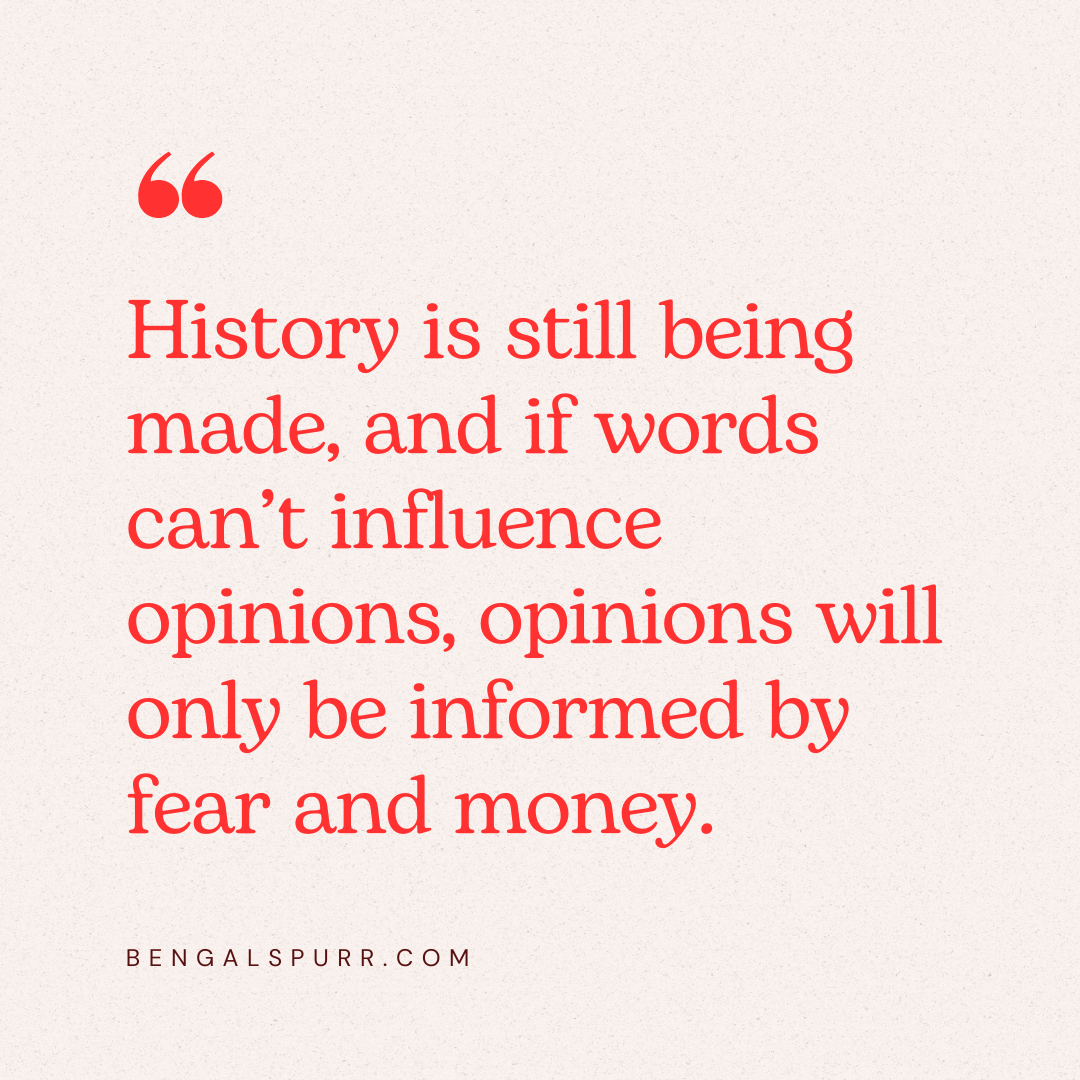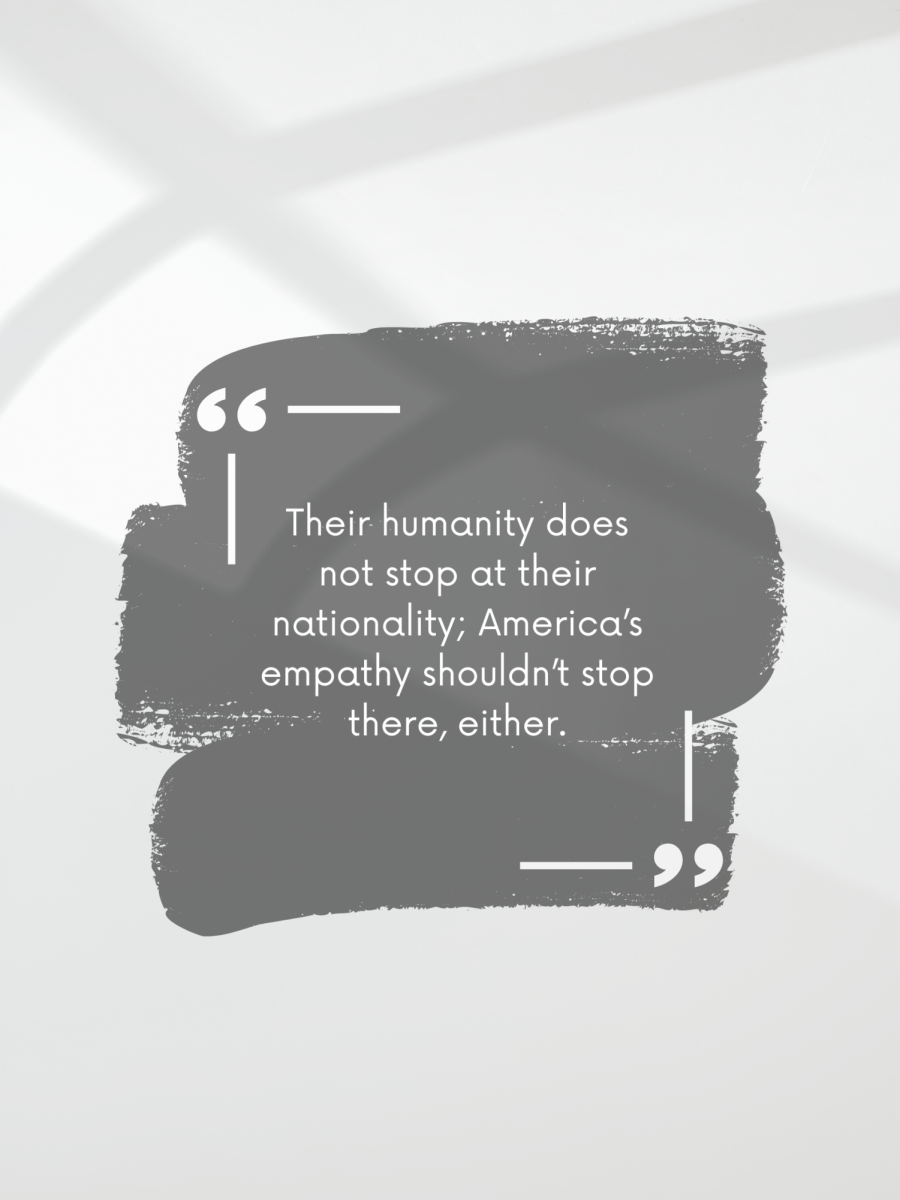These days, it seems as if words have little power. With the advent of social media, Americans went from reading articles and novels to reading posts and watching short-form videos.
Previously, the process of publishing was difficult and expensive. These days, though, anyone has the power to say anything without much thought at all. If everyone has the power to say any thought they have, does anyone really have a voice? How can one person or even one opinion stand out against all the others?
Considering how much the American attention span has decreased, messages must not only be shorter, but flashier and more exciting in order to be heard. This may not seem like an issue, but throughout history, literature has been used to impact historic political decisions and change people’s views. Words have the power to broaden an individual’s existence and help one understand how others think, feel, and act. Words create a sense of community and relatability. They also have the power to gently form or blatantly refute someone’s opinions. Without literature, history would not look the same.
It’s easy to forget how much literature has influenced history, but there are many examples, some of which are showcased below.
1. American Revolution
There were many forms of literature that impacted the formation of America from a small group of British colonies. The most well-known example is “Common Sense,” written in 1776 by Thomas Paine, according to American Battlefield Trust. At the time, colonists were hesitant to secede from Great Britain, and this pamphlet convinced many loyalists to become revolutionists. “Common Sense” had more than a half-million copies within its first year of publication and is credited for changing Americans’ minds and sparking the change that established America as an independent country. After the revolution, the American government was failing under the Articles of Confederation and when the Constitution was introduced, many were resistant to the change. James Madison, Alexander Hamilton, and John Jay worked together to write the Federalist Papers in 1787. There were a total of 85 essays and these papers convinced Americans to support the ratification of the new Constitution. This led to a successful ratification, forever changing the format of the American government.
2. Abolitionist Movement
Even before the creation of America as a country, slavery was an issue. It became more and more controversial as time went on, leading up to the Civil War. As many Americans in the North had a more distant perspective of slavery, Americans were still on the fence about the issue. That’s why many novels and articles were written to express favor for the abolitionist movement and try to encourage others to do the same. For instance, according to Study.com, Frederick Douglass published The Narrative of the Life of Frederick Douglass in 1845, which was his first autobiography and rose in popularity. The memoir was a firsthand account of Douglass’s experience growing up in slavery, escaping, and how he learned to read and write. It spoke to Americans and became an argument for the abolition of slavery. Additionally, Harriet Beecher Stowe published Uncle Tom’s Cabin in 1852. It portrayed the struggles of slaves, particularly arguing against the Fugitive Slave Law of 1850. These examples show how literature helped shift the mindset of an entire culture and ultimately led to the Civil War and the complete abolition of slavery.
3. The Gilded Age
In America, the time period from the late 1800s to the early 1900s was named after a book by Mark Twain titled The Gilded Age: A Tale of Today, because society seemed perfect on the outside, but was corrupt on the inside. Examples include political fraud, monopolies, and poor living conditions. Because of this, Jacob Riis released How the Other Half Lives in 1890 to illustrate the difference between upper and lower-class living conditions. This book was monumental in encouraging improvements like functional sewers, plumbing, and trash collection for lower-class tenements. Additionally, Ida Tarbell exposed the monopoly of the Standard Oil Company by publishing The History of Standard Oil in 1904, which led to the company being broken up into pieces. This was one example of muckraking, or “the activity, especially by newspapers and reporters, of trying to find out unpleasant information about people or organizations in order to make it public,” according to the Cambridge Dictionary. Another example of muckraking is Upton Sinclair’s exposé The Jungle, released in 1905. It exposed the meat-packing industry, which disgusted readers who were unaware of the unsanitary, unsafe working conditions. The book impacted national legislation to ensure sanitary guidelines and helped motivate the introduction of the Food and Drug Administration. Even during a time when corruption seemed irreparable, works of literature were able to enlighten citizens and even impact legislation.
4. Civil Rights Movement
From the 1950s to 1970s, many were upset over inequality accepted by society and encouraged by the government. This led to the Civil Rights Movement, which was a social movement vital in ending legalized discrimination and segregation. In 1965, Malcolm X and Alex Haley debuted The Autobiography of Malcolm X, according to NBC News. The memoir spoke to the anger and frustration resulting from racism, which contrasted Martin Luther King Jr’s movement, focusing on peace and hope. Both movements worked together to gather support and make lasting change. The Civil Rights Movement was primarily to right racial injustice, but the movement expanded to fight for women and gay rights. The Feminine Mystique, published in 1963 by Betty Friedan, fought against the illusion that women were fulfilled by being housewives and inspired women to pursue education and employment. The book sold 3 million copies and inspired a second wave of the feminist movement. Literature had the power to shift people’s opinions, rather than depending solely on actions to persuade people.
Ultimately, even though sometimes it doesn’t seem like it, words have the power to take emotions and opinions and transform them into a language, uniting people and creating lasting change. These examples illustrate how ordinary people were able to speak to a community, change mindsets, and someday be discussed in history classes.
The danger of social media lies in this question: if words become less impactful, how will history be made? If people only hear words an algorithm thinks they want to hear, how will people be challenged enough to grow and adapt? History is still being made, and if words can’t influence opinions, opinions will only be informed by fear and money.
History shouldn’t be influenced by a popularity contest of emotional reactions, history should be influenced by logic. That’s why literature is vital in explaining logic, and without it, history will look very different.







